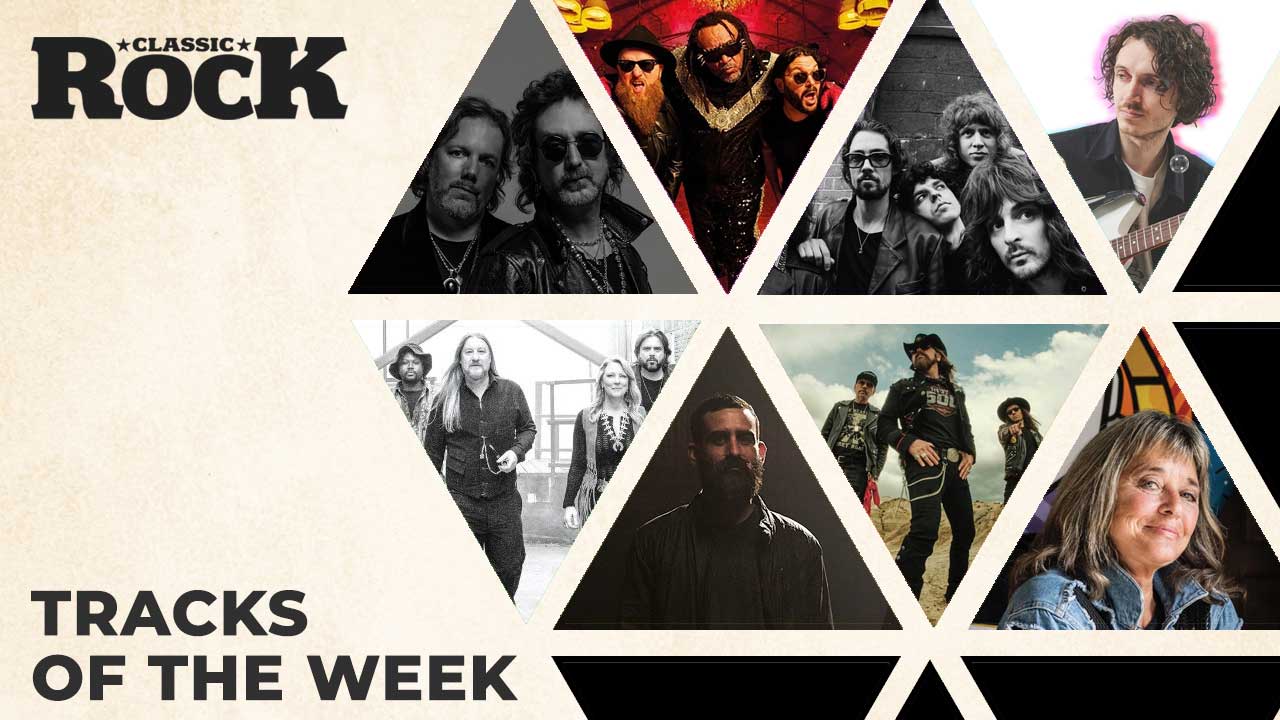AC/DC: the story behind the comeback of 2014
They surprised the world by announcing a new album, Rock Or Bust. But what happened next was even more shocking.
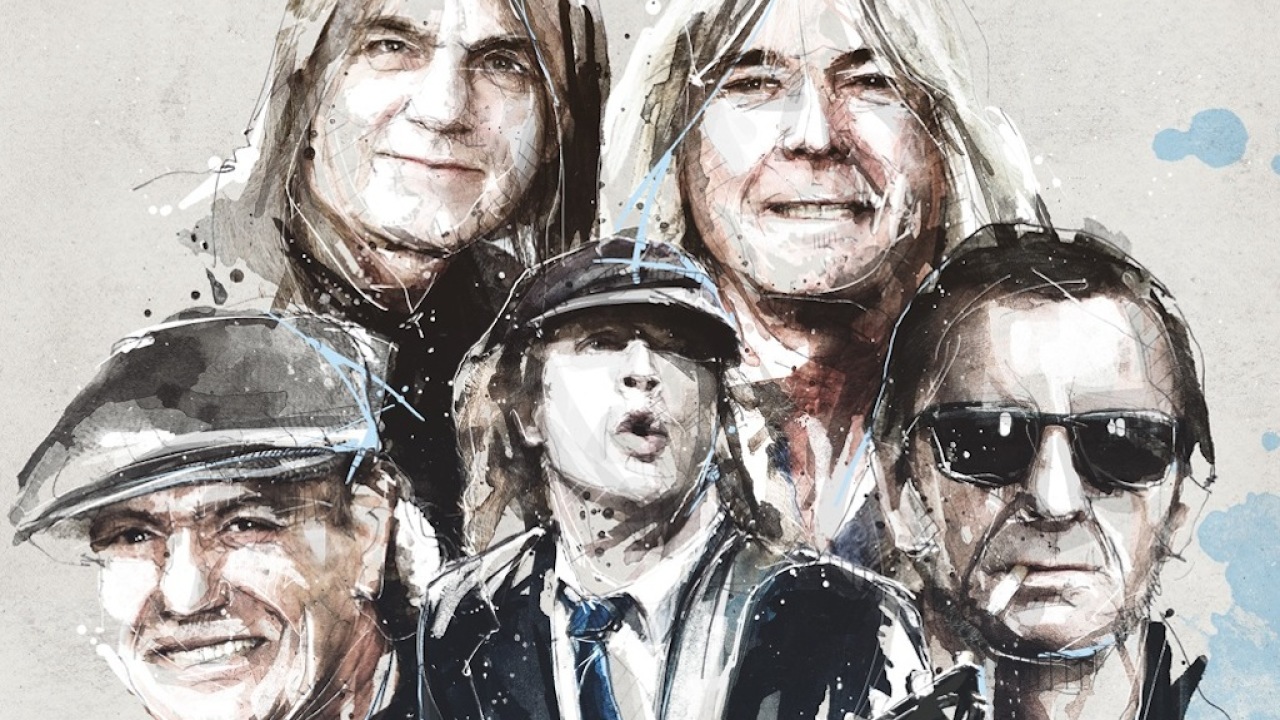
On the morning of November 6, 2014, Angus Young, Brian Johnson and Cliff Williams woke up in their hotel in Germany to the news that their friend, and long-time AC/DC drummer, Phil Rudd had been arrested in New Zealand. He had been charged with possession of cannabis, possession of methamphetamine and, most sensationally, “attempting to procure murder” by allegedly seeking to hire someone to kill two men. These were not the headlines that the trio’s European press trip were expected to generate.
Sixty-year-old Rudd had been arrested at his waterfront home in Matua, Tauranga on New Zealand’s North Island at 7am that same morning. That afternoon, unshaven and barefoot, the drummer appeared in Tauranga District Court and entered no plea to the charges. He was released on bail by Judge Louis Bidois, on condition that he should have no contact with anyone named in the court documents.
That same afternoon, AC/DC released a statement via their Facebook page. “We’ve only become aware of Phil’s arrest as the news was breaking,” the statement read. “We have no further comment. Phil’s absence will not affect the release of our new album Rock Or Bust and upcoming tour next year.”
Reading the band’s statement brought to mind a comment guitarist Angus Young made to Classic Rock just hours before the news broke. “As a band,” said Young, “you always want to go forward.”
The events in Tauranga were the latest drama in what has been an unexpectedly dramatic year for this most intensely private band. In mid-April a rumour spread worldwide that AC/DC were to hold a press conference in Sydney, Australia to announce their retirement. It was suggested that bandleader Malcolm Young had suffered a stroke, and that his younger brother Angus had consequently decided the group should disband. That rumour, however, was later debunked by Brian Johnson in an interview with The Telegraph newspaper, though the singer conceded: “I wouldn’t like to say anything either way about the future… One of the boys has a debilitating illness, but I don’t want to say too much about it,” Johnson said. “He is very proud and private, a wonderful chap.”
In the same week, AC/DC issued an official statement to address the rumours. “Malcolm is taking a break from the band due to ill health,” it stated. “Malcolm would like to thank the group’s diehard legions of fans worldwide for their never-ending love and support. In light of this news, AC/DC asks that Malcolm and his family’s privacy be respected during this time. The band will continue to make music.”
“We are definitely getting together in May in Vancouver,” Johnson told The Telegraph. “We’re going to pick up some guitars, have a plonk, and see if anybody has got any tunes or ideas. If anything happens, we’ll record it.”
Sign up below to get the latest from Classic Rock, plus exclusive special offers, direct to your inbox!
The result of that spring recording session in Vancouver is Rock Or Bust, AC/DC’s fifteenth international studio album. Recorded at The Warehouse Studio with producer Brendan O’Brien (who worked on 2008’s Black Ice), and with Malcolm and Angus Young’s nephew Stevie deputising for the group’s stricken rhythm guitarist, the album is – to no one’s surprise – 11 tracks of classic, blues-inflected hard rock. In fact no fewer than four of the 11 songs – Rock The Blues Away, Got Some Rock & Roll Thunder, Rock The House and the album’s title track – feature the word ‘rock’ in the title. Business as usual, then. Or at least that was the assumption until September, when the band announced that Malcolm Young was suffering from dementia and would not be returning to the band he formed in 1973.
When Angus Young, Brian Johnson and Cliff Williams began a short European promotional tour for Rock Or Bust in London on November 3, they might reasonably have anticipated that the most difficult questions they would face in the days ahead would concern Malcolm Young’s health. But the events of November 6 looked like overshadowing that particular situation.
There was to be another twist in the tale, though. On November 7, Phil Rudd’s lawyer, Paul Mabey, announced that the most serious charge against the drummer, that of “attempting to procure murder”, had been withdrawn by the Crown Solicitor. The lesser charges the drummer faced were to be addressed when Rudd appeared in court again on November 27.
In the lobby of Düsseldorf’s luxurious Breidenbacher Hof hotel, on the morning of November 7, it is made clear by the nice people from Sony Records that visiting journalists waiting in line to speak with the members of AC/DC really should steer clear of bringing up this whole unseemly business. God forbid that three tough, broad-speaking, working-class musicians in their late 50s/mid-60s should be asked for their thoughts on an issue affecting one of their closest friends and longest-serving bandmates. As it happens, however, when an enquiry is made to Angus Young, the guitarist doesn’t flinch.
“Well, it was quite a shock,” he admits. “We didn’t see that coming. I mean, who would have thought? But I can’t really talk for Phil here. And I haven’t seen him since, so I don’t know what the whole thing was about. All I do know is that he was cleared from all charges. And that means that we still got a drummer – and a damn good one, too.”
Over the course of the next 45 minutes the guitarist will be equally straightforward and unsentimental when reflecting on his band’s annus horribilis, the most testing year of AC/DC’s career since the death of their singer Bon Scott in 1980.
“Malcolm always said: ‘Just keep on going,’” Young says. “That was always the approach. [In the early days] we’d go on even without power. We had people in panic. Malcolm just said: ‘We are on here, we’re not coming off.’”
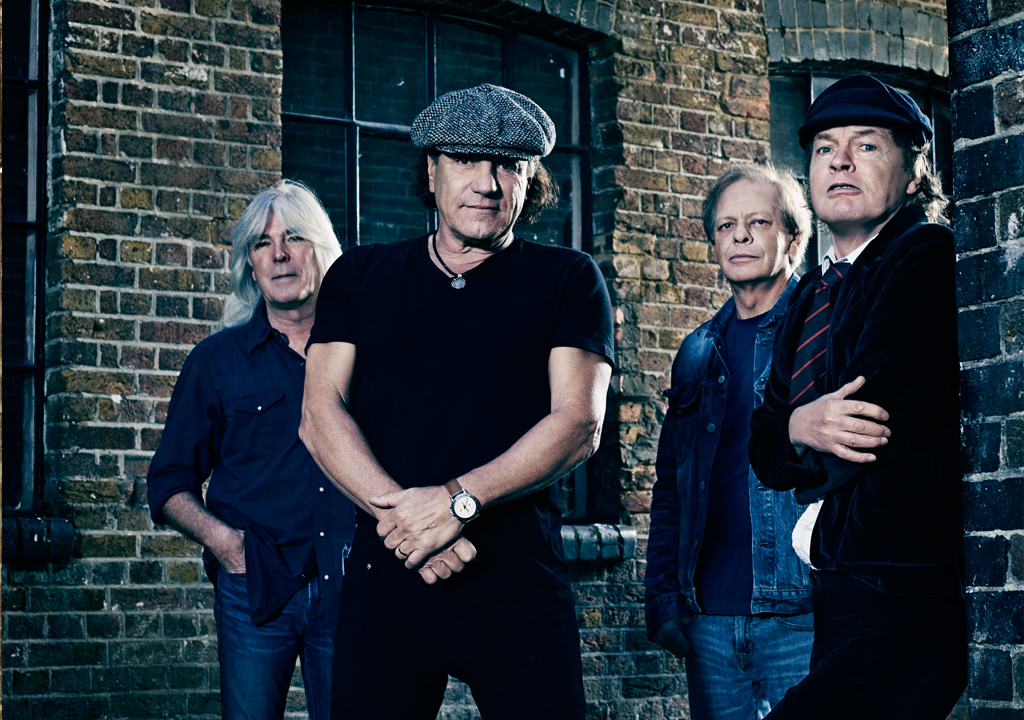
When we talked in 2008, Brian seemed very nervous about how Black Ice would go down and whether he’d still be able to pull off an entire tour. Now here we are, six years and six-and-a-half million copies later.
Angus Young: Yes!
Do you have any explanation why that album did so well? What is it that people loved about that record?
It’s always a hard thing to put ‘Why?’ to something. Why you have success, you know. Sometimes you wish you knew – you’d bottle it and sell it. It was probably… it had lot to do with the fact that we had time to write new songs at the time. And it was good, and it was the first time we ever worked with Brendan O’Brien. He had said at the time: “I’m going to get you sounding like this…” As an AC/DC fan, he said: “I’m going to be your sixth ear. I’m going to make sure that you’ve got a lot of great tracks.”
Rumour has it, Angus, that you always listened more to Malcolm than to any producer. He wasn’t too happy about Rick Rubin, for example. But it seems like you really hit it off with Brendan O’Brien, now for the second time in a row?
When we did Black Ice, Malcolm was the one to recommend Brendan. He had checked him out over the years. What Malcolm really liked was the fact that Brendan was a good musician. He always put the music first, and that’s really good for us as a band. He’s never doing anything that is not musical. Besides all the knowledge of studio technology, he has the musical ability.
Was there a specific moment when you decided to put out a new album?
We were hoping that we’d find a cure for Malcolm, but when he himself said he couldn’t do it any more we had to decide whether or not we wanted to carry on as a band. We were all in contact, and everyone wanted to give it our best shot, and once everyone was on board we got going.
And how is your brother?
Malcolm is in very good care. His physical health is good – he had a lot of problems, also physical. Then with the disease, the dementia… it’s progressing. He himself is all that he can be: happy.
Was Malcolm still involved in the songwriting process for the new album?
Yeah, well, Malcolm… I mean, every album we ever did was always borrowing from what we had done. We had a lot of great, great riffs and stuff that we’d always marked for a good song idea, and stuff that we had worked on but never used. I remember even with Back In Black we would go: “Oh, we’ll take that riff we had from ’78 and we’ll put it there. We’ll try that.” I’ve ideas I’ve carried since I was about fourteen years old! And every year I would play them to Malcolm and he’d go: “Yeah, you’re still playing that riff.” [Laughs] Because you would have recurring themes that would keep coming back and forth. And Mal going: “Well, one day this will [fit], you’ll like this, you know.” Stevie gave me a hand organising a lot of material, helped me go through a lot of stuff that we had. And Mal was always the same, we’d always bounce off each other. And Stevie could sit there and do that role and go: “Yeah, that’s a great riff. That sounds great. Loved that. That sounds definitely like AC/DC.” It’s good when you’ve got someone who’s knowledgeable and you can bounce off.
Stevie first played with you in the 1960s.
Yeah, because we’re all kind of close in age. He is my oldest brother’s oldest son. And we all kind of grew up [together]. Him and Malcolm are pretty close, they’ve similar characteristics. In fact, him and Malcolm had a lot more in common than even me and Malcolm in certain ways. And then, of course, they played that style, that hard rhythm style. And I mean I played totally to that. It’d complement what Mal does, but it’s a different style. Whenever I tried to copy what Mal did, it was a copy. Sometimes Malcolm said: “Oh, you’re getting a little bit better!”
So you’re actually replacing Malcolm with someone very similar, in a way?
Yes, Stevie is. It comes naturally to him, as it did to Malcolm. It’s a very solid way of playing.
How has this new situation changed the dynamics in the band creatively?
Not much has changed, since Malcolm and I always did a lot of the writing, on songs and ideas. Even with this album we had a lot of ideas, some newer, some older. Malcolm also kept going, kept writing, up until the time when he could no longer do it. So there was a wealth of material. On every album we’ve always mixed new and old. The main difference this time is that I had to put a lot of it together, in the hope that it’s how he wanted it done. I know his style.
Is Malcolm going to recover at some point? What’s the situation right now?
At this point I don’t think so, in the condition he’s in. Because it’s just a regression, you know? And it was him himself that said he couldn’t continue doing it.
When something like this is happening, does that make you reflect on your own health?
I never bothered so much about that. As long as I can get out of bed the next morning, it’s a good sign.
So in your case it’s until they send you home in a box?
I hope not! [laughs] But you do it till… as Cliff [Williams] says: “If you’ve got the desire and you feel good to still be doing it, you do your best.” I still love doing it – that’s what keeps me going. I still like getting that guitar and putting it on, whether it be creating something or getting on a stage. I’ve got that hunger to do it.
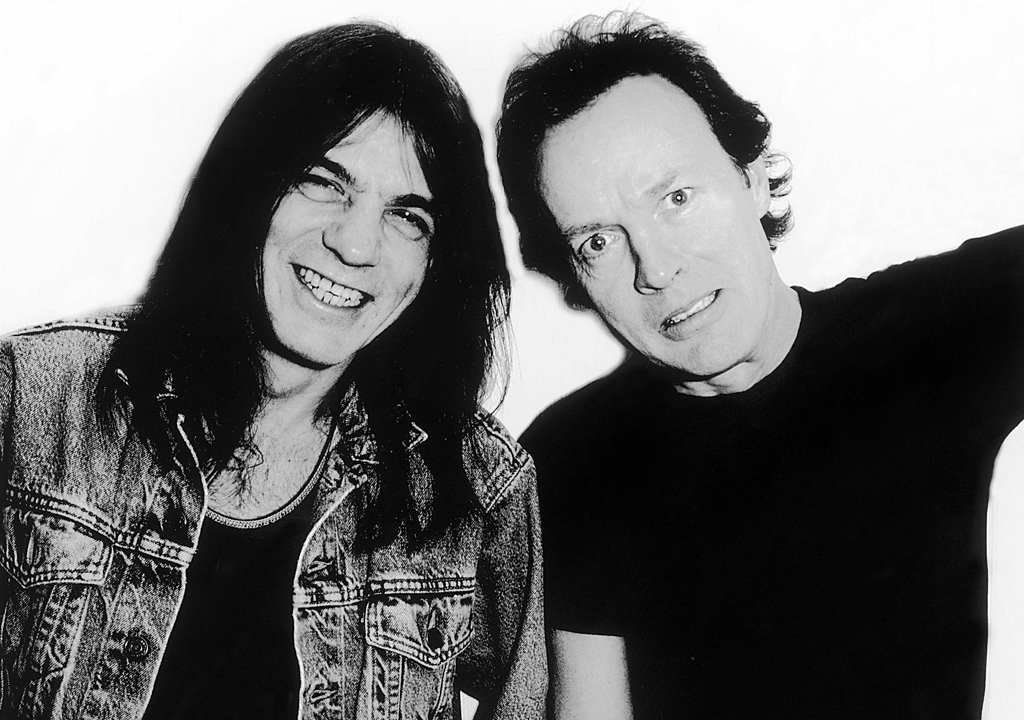
The first indications that there was to be a new AC/DC album in 2014 came at the end of April, when a photograph of long-time AC/DC back line crew members Geoff Banks, Rick St Pierre and Richard Jones in Studio 2 of The Warehouse Studio appeared on Facebook. A shot of a rack of Angus’s trademark Gibson SG guitars sitting in the studio was posted days later.
AC/DC have history with Vancouver: 1990’s The Razor’s Edge album was recorded with Bruce Fairbairn at Little Mountain Studios in the city, and both 2000’s Stiff Upper Lip and 2008’s_ Black Ice_ were recorded at The Warehouse Studio. The three-storey facility is owned by Bryan Adams, who spent $5 million converting what is the oldest brick building in the city – and formerly Vancouver City Hall – into a world-class, state-of-the-art recording facility.
From a technical point of view, AC/DC fell in love with Studio 2’s huge live room, and its vintage Neve console – commissioned by Beatles producer George Martin, and one of only three such desks in the world. Equally important to the band was the fact that the good people of Vancouver traditionally left them alone to go about their business at the corner of Powell and Columbia Streets. Except for a few snaps of Angus Young at street crossings in the city’s bustling Gastown district, outsiders might never have known that the band were in the city at all.
With Angus’s wife Ellen taking care of in-house catering at the studio, the atmosphere at The Warehouse was relaxed and productive, and songs came together quickly. There was just one misfiring component in the well-oiled machine, with Phil Rudd arriving at the sessions some 10 days after he was expected. “One minute he was coming, then he wasn’t, then he was,” Angus Young told_ Rolling Stone_ magazine. “We’re not a band that likes to wait around.”
Such was the growing tension around Rudd’s absence that Brendan O’Brien actually mooted the idea of bringing in a stand-in drummer to work on the album. When Rudd finally turned up, his appearance alarmed his bandmates. “It was not the Phil we had known,” Young admitted to journalist David Fricke. “He’d let himself go.” However, when he got behind the kit his performances were typically efficient, with the drummer completing his parts in just 10 days. “I’m playing better than I ever have,” Rudd boasted to Classic Rock in August. “I don’t know how.”
By the first week of July, AC/DC album number 15 was fully recorded. “It was brilliant over there,” Brian Johnson told Classic Rock after picking up an honorary Doctorate in Music from Northumbria University on July 9. “We’re done. I’m very excited and we’ve got some great songs.”
So ‘Rock Or Bust’ is your new motto?
Angus: Why not? Go for it, yeah.
If you were to compare this album to any one in your back catalogue, which one would it be and why?
That would be tough, it’s hard to compare. I know a lot of people say we always make the same album, and that all we do is change the cover, but every album stands by itself. This one is very tight, the songs are straight and simple. Brian [Johnson] says its reminiscent of the sixties, with short, exciting songs, like on a Stones album. Brendan wanted to pack as much in as he could in the songs. He wanted to capture the excitement of the live shows on record.
It contains just thirty-five minutes of music, though. Why such a short album?
Well, Brendan said it’d be good. He says: “If you want it like an AC/DC show, you want it like, ‘Boom! Boom! Boom! Boom!’” He said: “That’s the one thing I noticed when you’re playing live: you just get on with it.” So, I thought: “Well, I’ll take your word for it.”
Some AC/DC albums sound huge, whereas this one is dry, honest and smaller.
As a band we never liked to overdo things. The format was always two guitars, bass, drums and vocals, and we just stuck to it. We were never a band that used forty-eight tracks. We kept to our thing. We started with a sixteen-track studio. And that’s one of the great things, just making basic rock’n’roll and making it sound the best with what you have; no layer of guitars to make it sweet, or anything.
Also, this album shows that AC/DC are a damn good blues band at heart.
Yeah, well, we’re big fans of the blues music. And there’s a lot of the blues element in what we do. I mean, if you listen to Elvis Presley, his early work, a lot of songs are just pure blues. And the same with a lot of other acts, there’s that blues element that comes into it. It’s always there. It’s something that’s part of our nature.
Meaning your reputation as one of the world’s leading hard rock or metal bands is nothing but a giant misunderstanding?
Well it is in a way, yeah. I mean, I’d say we’re just a rock band, a blues-infused rock band. Maybe we’re a little bit louder and rougher around the edges. We play electrified blues, but it’s really mean and nasty.
Why not take it further and record an acoustic blues album for a change?
Yeah, I know. But who’s going to buy it? [laughs] Maybe me and my mother! I know my instrument, I’ve practised a lot. But to be honest, while sitting alone playing, it sounds shy and timid. It’s when I play with the other guys on stage, that’s when it comes on. Maybe I should be in an asylum, playing quietly.
Brian Johnson’s working title for the new AC/DC album was Man Down. Ultimately that title was rejected, as AC/DC’s ‘people’ considered it to have negative connotations. Which is a shame, because it would have been a touching recognition of Malcolm Young’s absence from what will surely be the final new album of AC/DC’s career. But in truth, Malcolm Young’s presence resonates throughout Rock Or Bust, irrespective of the fact that he didn’t strike a single chord on his band’s new record.
In interviews conducted after AC/DC’s European promotional tour, Angus Young conceded that his brother’s dementia actually started creeping in before the band worked on Black Ice. And anyone who has watched a loved one deteriorate as a result of dementia will surely recognise a bald truth in the guitarist’s admission that, as a proud man, Malcolm fought valiantly to counteract the inevitable lapses in concentration and memory which characterise the disease.
Ultimately, this most indestructible and larger-than-life band were forced to recognise the human frailty at their core. Not that you’ll hear the slightest trace of weakness on Rock Or Bust. If anything, AC/DC’s swansong finds the band as bullish and cocksure as they’ve been in years. It’s difficult to listen to a song like Rock The Blues Away, with its swaggering insistence that the band are ‘rockin’, rollin’, laughin’, jokin’,’ and not detect a certain stiff upper lip being deployed.
But AC/DC are more than just five people in a band, they represent a lifestyle, a mindset, an entire raison d’être. The bravado may be more transparent than ever before but, really, would anyone wish to hear anything else from AC/DC? In rock they trust.
You have a song on the new album called Hard Times. What times are you referring to?
Angus: The early days. The hard times when we had to struggle to make a living. We wanted to tour a lot of places. You were living on borrowed money a lot, and you didn’t think about all the other stuff, you were just a musician. It was just at the end of the tour you found out: I’m broke! It’s also a little bit nostalgic. A lot of the beginnings of a band are hard. Like the first job I had was working in a factory. It was not a great experience.
You like this better?
Yeah! When I started playing rock’n’roll, the greatest thing was when I didn’t have to go to work.
What prompted you to write a song about emission control?
Emission Control? A little bit of humour. It was just a fun title. And it suited the song because there’s a heavy kind of funk, in a little way. And it was just a little bit of humour.
As with the imaginary female in Miss Adventure?
Yes!
Because there’s no rock’n’roll without a healthy dose of sex.
Yeah. Miss Adventure always reminded me of those early James Bond movies when they had the heroine with some strange name like Pussy Galore. That was one of them I remember. Or Miss Moneypenny. They always had those names, which you don’t see in the newer Bond things. And I kind of miss that. I always liked those old James Bonds. As a young boy I paid money to get to see those films. I used to always look forward to hearing what they came up with next.
How much social commentary is there in the new song Dogs Of War?
Well, it’s actually not a modern idea of war. It’s a bit… Remember Hannibal, with the elephants? It’s a bit like that. Whenever I read about Hannibal, they said he was a master of putting together all these different countries with different armies, who were all like mercenary armies. And he was just great at it. He was built for that: built for warfare or something. So it’s not really about a social commentary. But I suppose into modern times they’re still doing it, they’re still paying people to go in and do a little bit of warfare here and there. But we do it in a musical sense.
Do you think there’s a parallel between Hannibal and Angus Young?
[Laughs] Well, maybe. You know, we’re there when you’re not looking. Just when you least expect it, there they are!
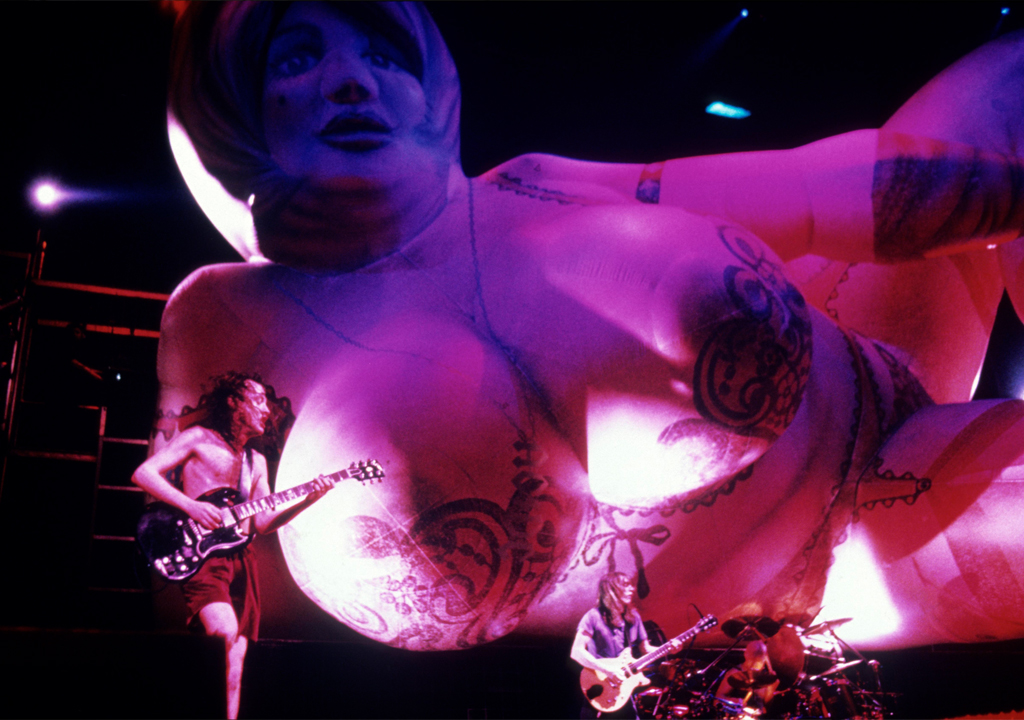
2015 marks the 40th anniversary of AC/DC as a recording band. There have been suggestions that they will bring the curtain down on their career by playing 40 stadium shows in 40 cities around the world in 2015. But such an arrangement may be more appealing to sentimental fans than the band themselves. The band’s two-year world tour in support of Black Ice has been officially recognised as the second-highest grossing tour in history. Taking in $441.6 million (£282m) in gross revenue, with some 4.9 million tickets sold, it’s an achievement bettered only by the Rolling Stones’ A Bigger Bang tour, which generated $558.3 million (£357m) in gate receipts. So who’s to say that the band won’t fancy a go at taking the number one slot with a more prolonged stint on the road?
Questions remain as to whether Phil Rudd will get to use his passport in the coming months – the drummer was replaced for the video shoots for Play Ball and Rock Or Bust by former Man/Asia/Shy drummer Bob Richards, and at the time of writing his situation remains uncertain – but it’s inconceivable that the world’s finest rock’n’roll band would end up going out with a whimper rather than a bang. Angus Young, certainly, sounds determined to push the band onwards for one final, glorious, grandstanding climax, and his parting words chime with the indomitable spirit that has been AC/DC’s modus operandi from day one.
There’s talk about an AC/DC world tour next year. How are you going to top the last one?
Angus Young: Yeah, we’re doing the best to get everything together to get out there and tour. It’ll be a good one. It’ll be a good event.
Do you enjoy touring just as much today as you did way back?
It’s pretty much as fun on the road as in the beginning, but there’s a lot of travelling. And it’s the playing which is the thing. And what’s interesting, when the internet was new, some people said it would be the end of touring, because now people could just see you on the internet. But guess what, we’re still on the road.
What makes you go out touring today?
You gotta like it, enjoy it. Over the years we managed to do it in a more comfortable way. Before, we had to bring our own lunch bags. Now we can order some.
You had a huge live show last time, with new staging like the rock’n’roll train. Will there be a new Rosie or something for the 2015 tour?
We’ll put more train carriages on this time, we’ll put a few more passengers on, a few extra tickets. And of course you have to come with all the bells and whistles. You gotta add to the show.
Will you still be mooning the audience?
I don’t think they’ll ever let me stop doing that! Simply because it’s become such an elemental part of our show – same as the duck-walk or the spasm thing. It’s just part of who we are. And people would be disappointed if I won’t drop my pants for them. Especially as my behind is still in pretty good shape! It may not be as a slick as it used to be, but it’s still a great butt. And as long as it doesn’t scare them away, people might really be entertained by it. Strange but true.
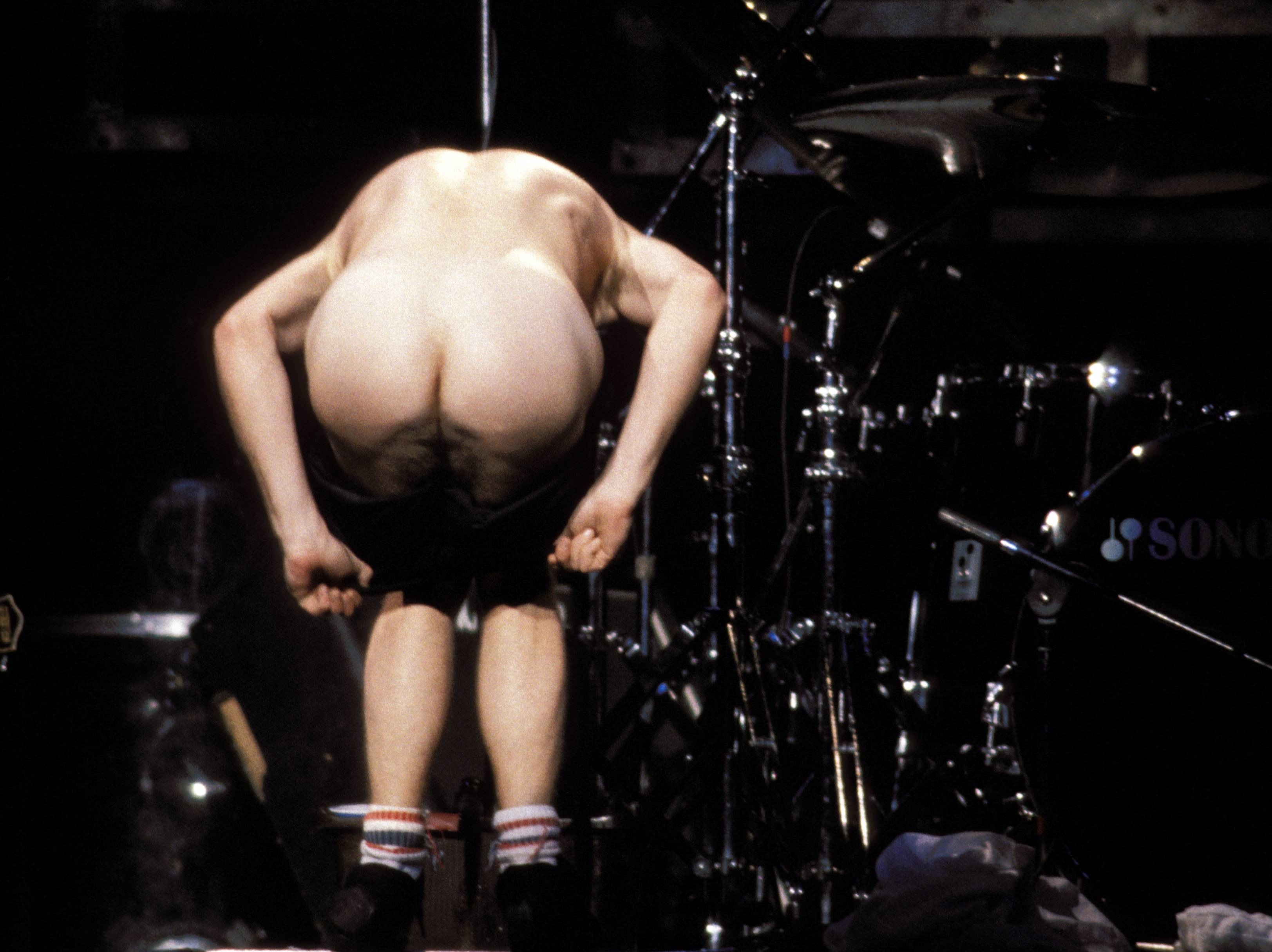
We’re sitting around here, and you seem very relaxed, but on stage you’re the iconic crazy devil. Do you feel exactly the same, say, in front of 100,000 people as at this very moment, or do you change into a different persona on stage?
I do get into character. I’ve been lucky because I learned it very much in the beginning. Like when we were younger, and I was with Malcolm, things could get very rough and wild. There was a situation once when I felt like a target, and even the police there said they wouldn’t recommend that we’d go on stage. I had the school suit on, worried, with Bon and Malcolm. Malcolm said: “What we do is, before we go on, me and you sneak up and see just how the audience is.” I was still afraid of being a target. Malcolm said: “We’re there, Bon is right behind you.” And then Bon said: “By the way, do you still have that number for that lady from yesterday? Just if something happens…” [laughs] And ‘boom!’ I was on. You just had to do it.
Do you have any idea how you’re going to celebrate your own 60th birthday in March?
I guess we’ll be on tour then. At least that’s where I expect us to be. And so I might end up spending that night on stage celebrating with the fans. Which suits me well. I love the enthusiasm of a good crowd. And if it’s an off day then I might as well stay in bed for a change and do nothing. Which is a nice thought, by the way. I think I’d love that.
What’s so great about doing nothing?
Well, just because it’s so rare. I hardly get to do nothing – ever. So that sounds like a great idea. But I guess the guys won’t let me get away with that. They’ll come up with some stuff that will make me get up and join in. I mean, that’s what you’re in a band for: you’re tickling your inner child. And AC/DC is perfect for that. This band is the reason I still feel like an 18-year-old kid. I might not look like one, but that’s what I am on the inside. And I hope it’ll stay that way. Even when I’m fucking sixty.
